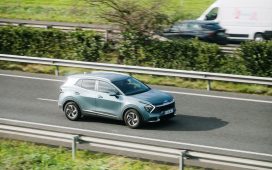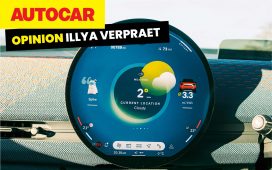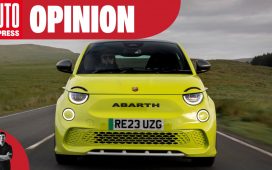The latest Swift is a conventional small car offering and very Suzuki: light and frugal, with a strong list of equipment and keenly priced.
Although small cars’ share of the overall UK market has shrunk from 20% to 15%, “the B-segment is important and our customers want a small car”, says Suzuki UK’s cars director, Dale Wyatt.
The new Swift is the fourth generation of a global model launched in 2004, although there were two previous European versions before that, so we’ve had Swifts here for 40 years. Suzuki calls this one all-new, although the ‘all’ is doing some heavy lifting, because who’s making new small cars platforms these days?
This Swift rides on an evolution of the previous Swift’s Heartect architecture, although there’s nothing fundamentally wrong with that. It has a transversely mounted engine, front-wheel drive (with a 4WD option) and a 1.2-litre three-cylinder petrol engine, which is mildly hybridised, as standard.
There’s a five-speed manual gearbox and, on front-drive models, a CVT automatic option. Suspension is by MacPherson struts at the front and a torsion beam at the rear. The brakes are ventilated discs at the front and drums at the rear.
The appearance is new, but the Swift is broadly the same size as before, so it remains one of the smaller cars in the class, blurring whatever lines still exist between city car and supermini, at 3.86m long and 1.74m wide.
Gratifyingly, FWD versions come in at less than 1000kg. Wyatt says Suzuki makes cars that “tend to be a little smaller than the competition”. “They’re smaller, neater, lighter. There’s a Japanese phrase for it [sho-sho-kei-tan-bi, apparently]. It’s a philosophy.”
Sound-deadening has been applied, though, in places where it usually doesn’t make it onto a Suzuki. There’s underbody sound and vibration adhesive, upper-body structural adhesive to stiffen the shell, more baffle plates in the A-pillars, thicker damping sheets on the floor and dashboard, heavier carpets and liquid-filled engine mounts.
Overall, weight is up by several tens of kilos over the lightest previous Swift, but nonetheless a basic-trimmed manual car is still just 949kg.











